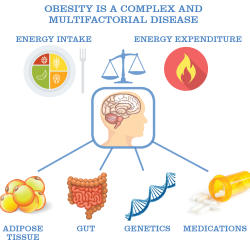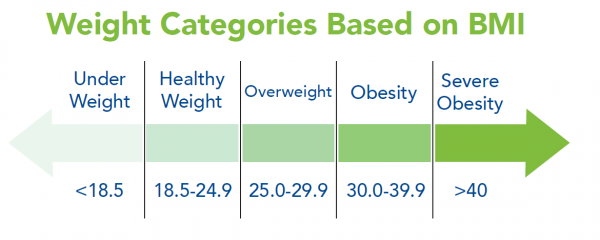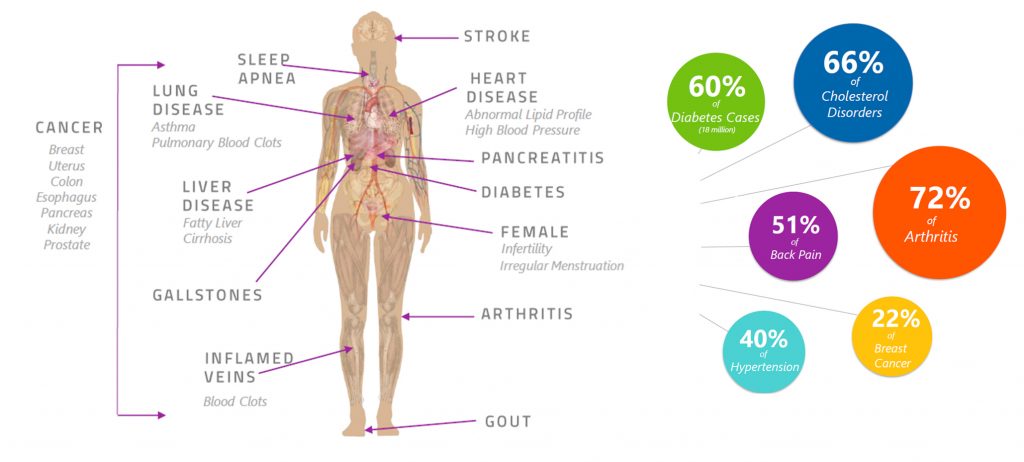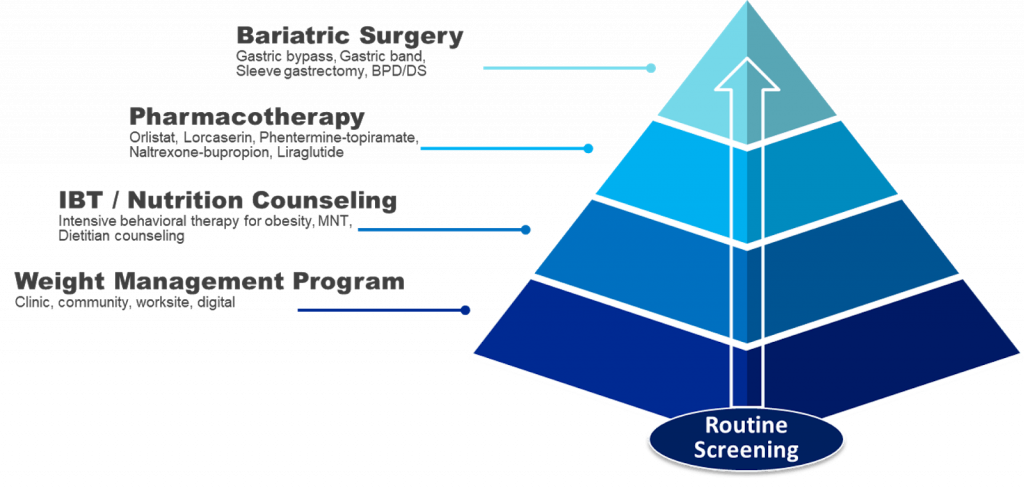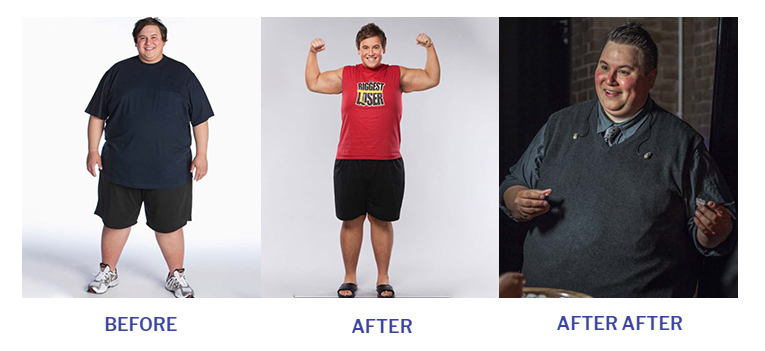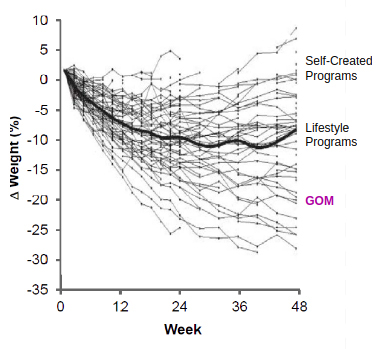Obesity is a complex disease and body weight is affected by many factors. Some of the factors include energy balance (calories in, calories out), environment, biology, genetics, medications and behavior.
Sources:
- Woods SC et al. Int J Obes Relat Metab Disord. 2002;26 Suppl 4:S8–S10.
- Ludwig DS. JAMA. 2014;311:2167–2168.
- Garvey WT et al. Endocr Pract. 2014;20:977–989.
- Bray GA and Ryan DH. Ann NY Acad Sci. 2014;1311:1-13.

